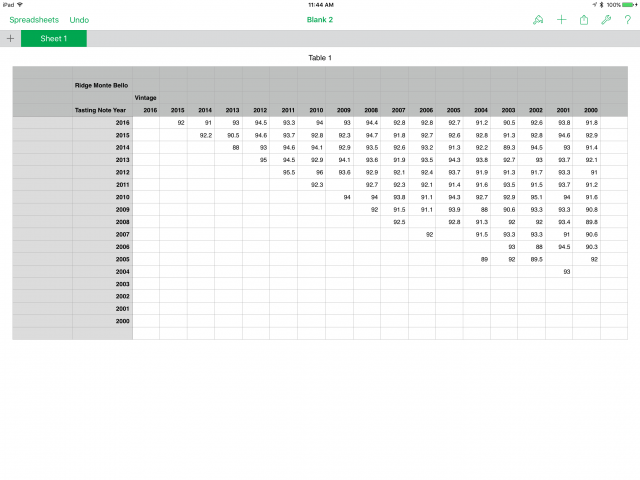I’m relatively new to wine compared to many on this board. I’ve been collecting for a handful of years, and so I rely on tasting notes maybe more than a seasoned connoisseur who knows their palate might. One of the resources I turn to most often is Cellar Tracker. Sure, I read notes from established critics, but they’re typically based on new release wines and I don’t get the diversity and tasting notes over time which CT notes have.
While tasting notes can vary widely…it’s open to the general public, tastes vary, etc., my logic is that the collective wisdom of the notes is at least a leading indicator on whether the wine will be good, keeping in mind the variety characteristics and history of the brand. For example, a Caymus cabernet may receive consistently high scores, but if you’re not a fan of a fruit-forward style, you would realize the wine may not be for you.
What I love about CT (amongst many things), is the historical nature of the notes. I can look up a single vintage wine and see how the scores and notes have progressed over time. While the “data” or notes are subjective and inconclusive on a wine, I like to think it’s at least indicative of the wine’s progress.
It got me thinking…with a benchmark wine known for aging, do the scores support that the wine is truly getting better over time? I took the scores (see chart below) for Ridge Monte Bello, a wine widely respected and with a reputation for cellaring, and dug into the numbers. Going as far back as notes were available, I plotted all of the score data on a chart. What I found interesting is that the scores suggest that most of the vintages of these wines are not scoring higher over time. For example, the 2001 Monte Bello scored an average of 94.5 in 2006, and is scoring 93.8 in 2016.
At the risk of oversimplifying, one would infer from the scores that the 2001 wine was excellent 10 years ago and remains excellent today. But no significant improvement, at least with the scores. Could it just be that scores several years ago were more based on fruit, freshness, and potential, and that today’s scores, while similar, reflect an aged wine with tertiary flavors starting to evolve? Scores are inherently subjective, so any analysis is difficult. But does it reopen the discussion about the aging of wines?
